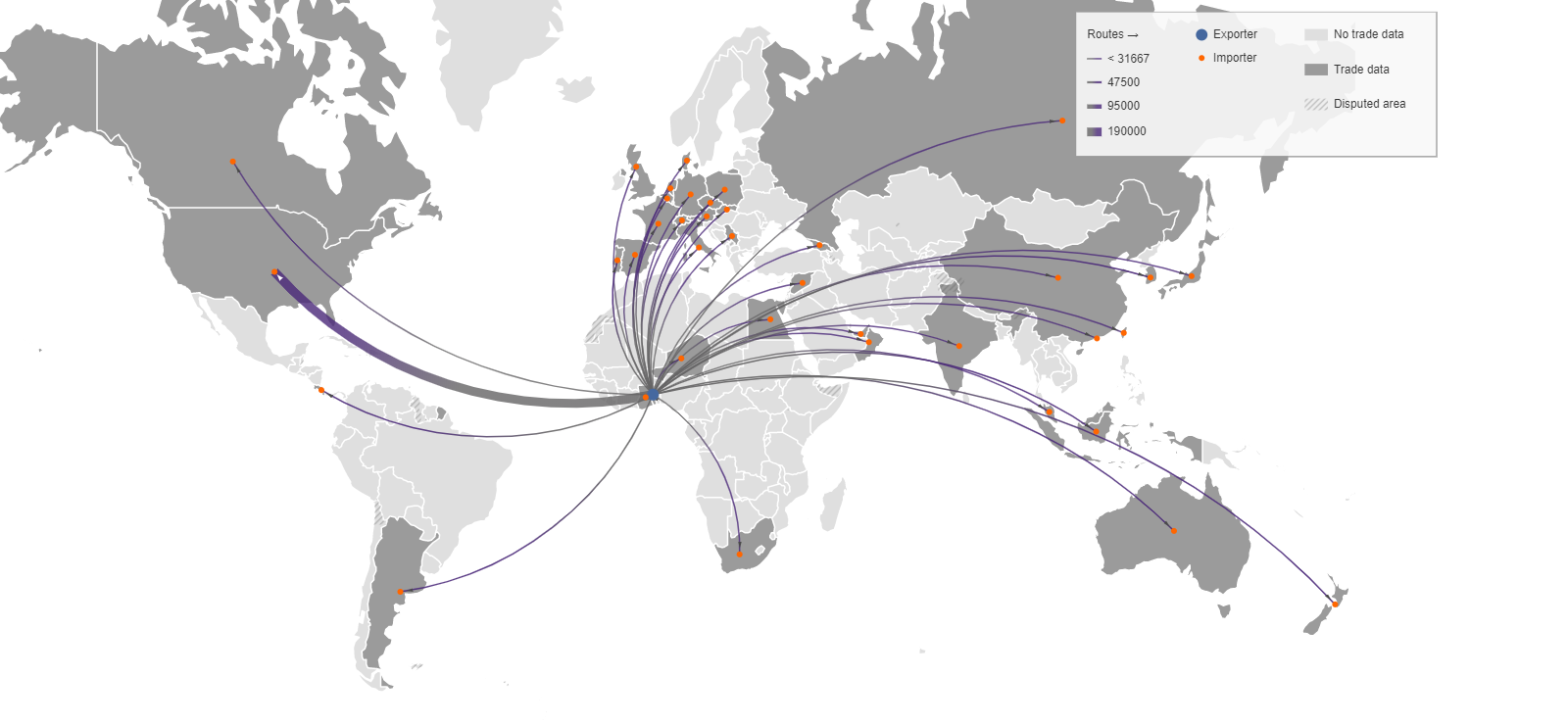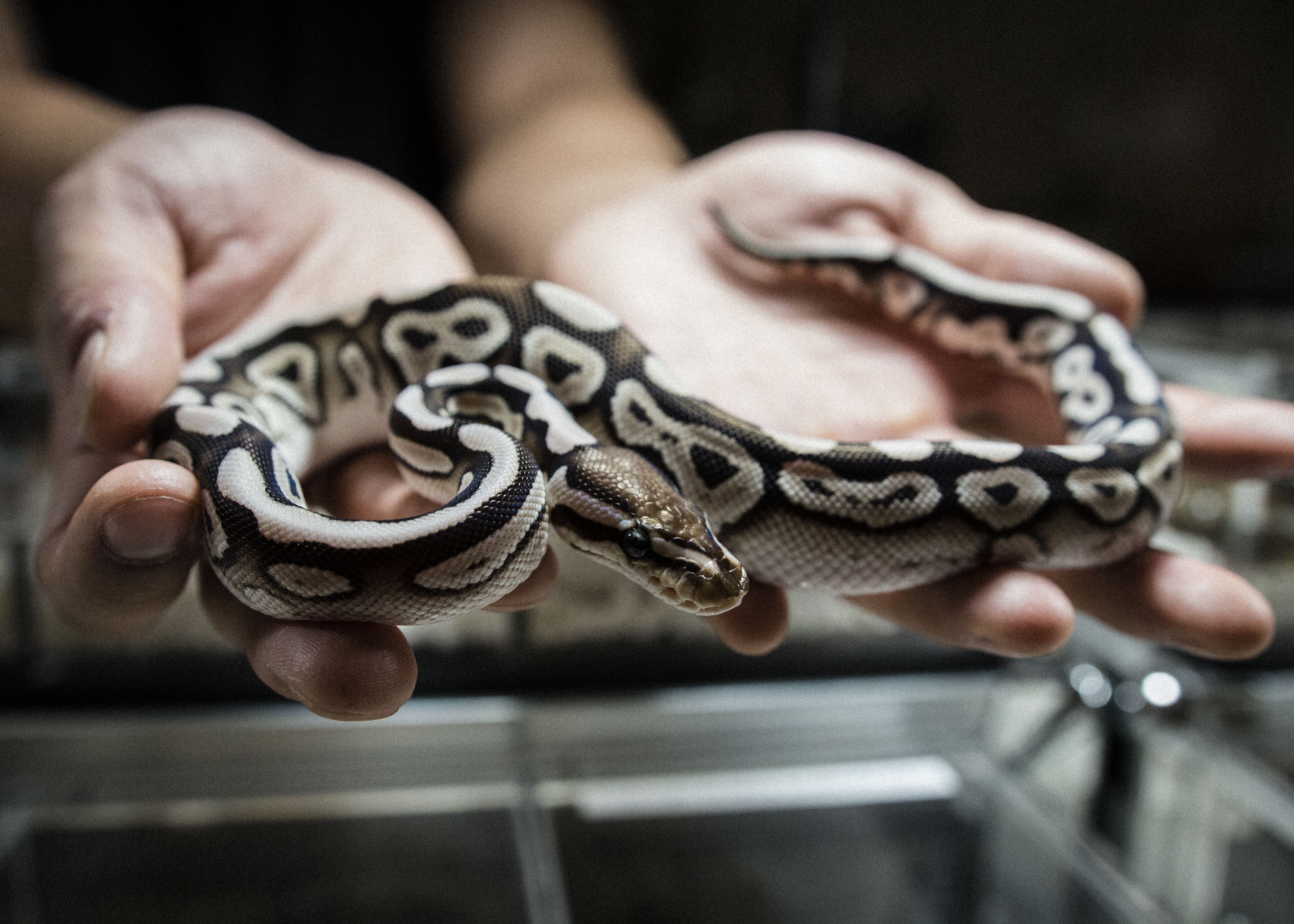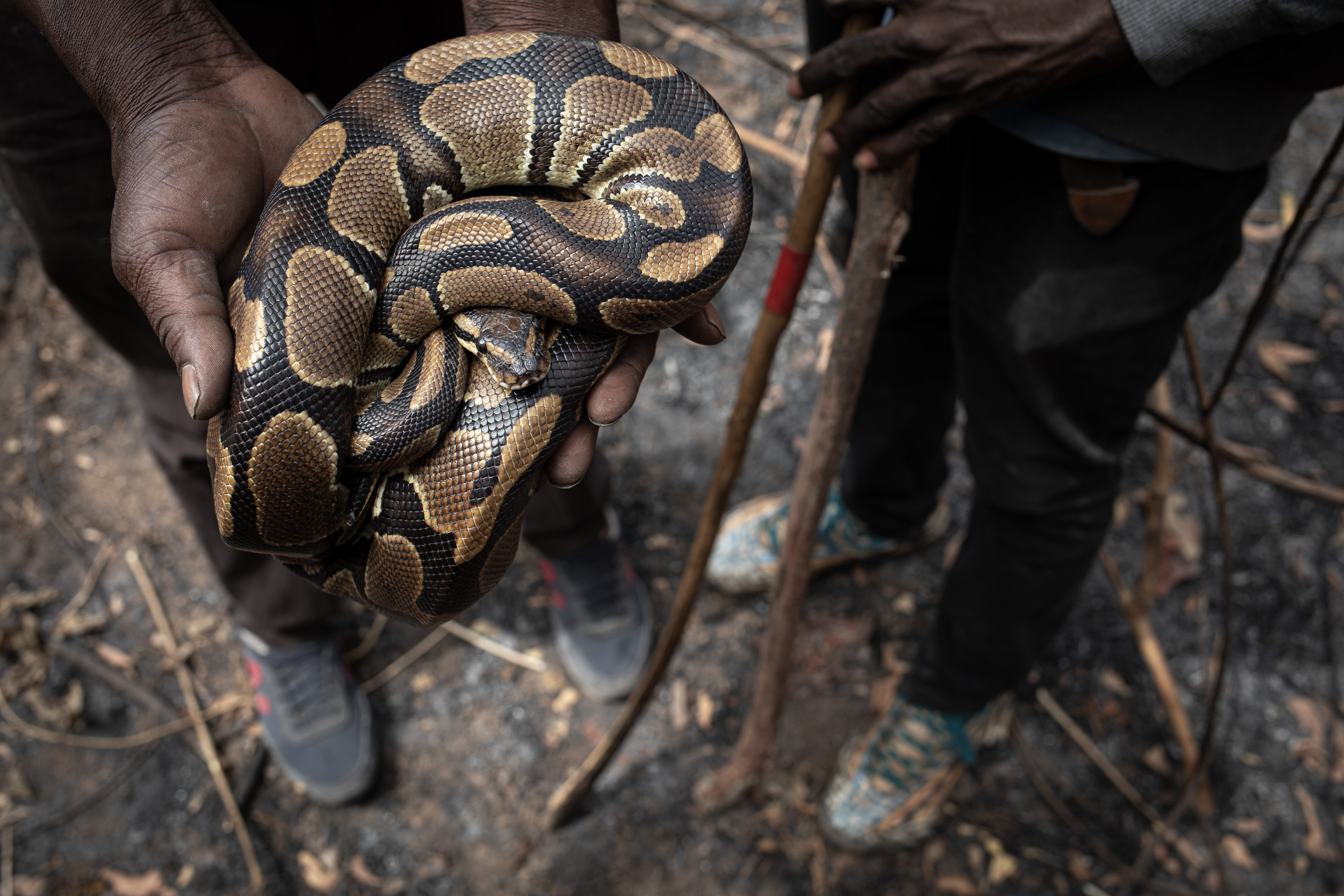News
Ranching ball pythons in West Africa to supply the global exotic pet trade
By Lauren Harrington and Neil D’Cruze.
Ball pythons are a hugely popular pet here in the UK and elsewhere in Europe, North America and Asia. Pet shops are supplied by in-country captive breeding, but perhaps what most ball owners are not aware of is that considerable numbers are also still exported from range states in West Africa, some directly from the wild. For the ten years between 2008 and 2017, CITES trade records show the import of 38,334 ball pythons into the UK from range states, several hundred of which were wild-sourced (the rest were “ranched” which depends on the collection of eggs and young from the wild). Other ethical considerations aside, arguably legal commercial trade involving any wild animal species should have sufficient safeguards in place with respect to protection of wild populations, humane treatment of individual animals at all stages of the trade chain, and biosecurity. Our work on ball python production in West Africa to supply the global exotic pet trade – the latest paper published yesterday – suggests that overall these safeguards are insufficient. For example, although this species has been traded for decades, reports from hunters that snakes are harder to find than they were five years ago, raises questions about the long-term sustainability of hunting ball pythons, and our own observations of animals held in Togolese farms suggests that the welfare and biosecurity conditions under which the trade operates are inadequate.

Global ball python exports from Togo, 2012-2016. Data: CITES trade database. Map generated using TradeMapper (TRAFFIC 2018). Supplementary Materials, Harrington et al. (2020)
Since 1978, Togo, Benin and Ghana, have exported almost 4 million ball pythons, predominantly, but not exclusively, to the USA. This high volume trade is regulated under CITES (the Convention on International Trade in Endangered Species of Wild Fauna and Flora) and ball pythons (listed on CITES Appendix II) are exported from range states under permit. Since the early 2000s, most exported ball pythons have been reported as ranched, which for ball pythons involves the collection of gravid females and ball python eggs from the wild, that are then kept at farms until the females (that are later released) have laid their eggs, and the eggs have hatched – most snakes are then exported as juveniles at about 15 – 30 days post-hatching (a proportion are also released back into the wild).
CITES operates through national agreements and as such export records are collated from, and quotas agreed with, individual nations. In reality, snakes move across borders, and are hunted, sold and traded (formally, informally, and potentially illegally) across borders meaning that total regional-level harvests are poorly understood and conservation efforts in one country may be undermined by a lack of protection and unsustainable harvest in another. Our analysis of CITES trade records also reveals inconsistencies among nations (in quota setting and reporting), and complexities associated with interpretation of CITES source codes (which matters because source codes define the extent to which supply is dependent on wild populations). To provide the necessary clarity and oversight to ensure sustainable, humane and safe management of this species throughout their native range we suggest a tripartite management approach, and call for a review of the situation (in particular the current lack of population data on which to inform policy and quota setting).
Further work in this area shows that although ball pythons are the most frequently exported, there is a huge diversity of species of all taxa exported as pets from this region, most of which are not CITES-listed. Amongst reptiles alone, at least 46 species were observed during visits to farms. This work is currently on-going.
Ball python ranching currently brings significant livelihood benefits to hunters (as does presumably wildlife exports to traders) but our calculations raise doubts as to whether the current number of hunters supported by the commercial ball python trade is sustainable. Similarly, the number of “snake farms” and export companies in operation at any one time in West Africa appears to be relatively small. This suggests that improvements (and/or, if necessary, alternative livelihoods) may be feasible. Given the likelihood of future trade restrictions on live animals in response to the current global pandemic and COVID-19, we consider that both would be worth exploration.
This work was funded by World Animal Protection, and carried out in collaboration with colleagues in Germany and Togo. Further details can be found in the following papers published in Nature Conservation:
Harrington LA, Green J, Muinde P, Macdonald DW, Auliya M, D’Cruze N (2020) Snakes and Ladders: A review of Ball Python production in West Africa for the global pet market. Nature Conservation 41: 1-24. https://doi.org/10.3897/natureconservation.41.51270
Auliya M, Hofmann S, Segniagbeto GH, Assou D, Ronfot D, Astrin JJ, Forat S, Koffivi K. Ketoh G, D’Cruze N (2020) The first genetic assessment of wild and farmed ball pythons (Reptilia, Serpentes, Pythonidae) in southern Togo. Nature Conservation 38: 37-59. https://doi.org/10.3897/natureconservation.38.49478
D’Cruze N, Bates J, Assou D, Ronfot D, Coulthard E, Segniagbeto GH, Auliya M, Megson D, Rowntree J (2020) A preliminary assessment of bacteria in “ranched” ball pythons (Python regius), Togo, West Africa. Nature Conservation 39: 73-86. https://doi.org/10.3897/natureconservation.39.48599
D’Cruze N, Harrington LA, Assou D, Green J, Macdonald DW, Ronfot D, Hoinsoudé Segniagbeto G, Auliya M (2020) Betting the farm: A review of Ball Python and other reptile trade from Togo, West Africa. Nature Conservation 40: 65-91. https://doi.org/10.3897/natureconservation.40.48046
D’Cruze N, Assou D, Coulthard E, Norrey J, Megson D, Macdonald DW, Harrington LA, Ronfot D, Segniagbeto GH, Auliya M (2020) Snake oil and pangolin scales: insights into wild animal use at “Marché des Fétiches” traditional medicine market, Togo. Nature Conservation 39: 45-71. https://doi.org/10.3897/natureconservation.39.47879
D’Cruze N, Harrington LA, Assou D, Ronfot D, Macdonald DW, Segniagbeto GH, Auliya M (2020) Searching for snakes: ball python hunting in southern Togo, West Africa. Nature Conservation 38: 13-36. https://doi.org/10.3897/natureconservation.38.47864
-
 Ball Python for Sale at a USA pet expo. Neil D'Cruze, World Animal Protection
Ball Python for Sale at a USA pet expo. Neil D'Cruze, World Animal Protection -
 Python hunters, West Africa. Aaron Gekoski, World Animal Protection
Python hunters, West Africa. Aaron Gekoski, World Animal Protection





